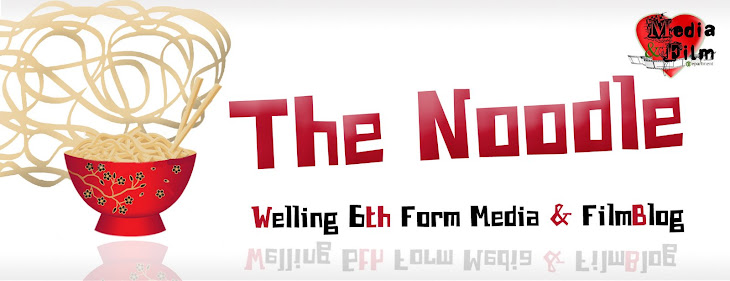"Postmodernism isn’t really a single theory at all; it’s more a set of ideas used to describe the way in which culture and cultural artefacts (art, music, fashion, film, TV, literature and even architecture) have been produced in the late twentieth and early twenty-first centuries. When we talk about something like a film or painting or a piece of music being postmodern, we are usually giving it certain qualities which some thinkers see cropping up again and again in the culture of the world around us.
Postmodern, then, is the term that is used to describe what comes after modernism. It is difficult to pin it down to a strict definition, but it certainly seems to be very different. Where modernist texts are very dense, serious and complicated, postmodern texts or artefacts seem less serious and more playful. The Fontana Dictionary of Modern Thought says that:
Postmodernism is often associated with a revolt against authority and signification and a tendency towards pastiche, parody, quotation, self-referentiality and eclecticism.
A complex definition. So what does it mean? Well:
– ‘revolting against authority and signification’ would suggest that postmodern texts tend not to reflect the established order of things, but rebel against mainstream ideas about what is appropriate and fashionable.
– it also means that they tend not to express any specific meaning or intention, such as a social or political agenda. Rather these texts ‘play around’ with ideas through the way they look and sound.
– ‘pastiche, parody and quotation’ means that these texts often refer to, borrow from and sometimes just outright copy other older or contemporary texts.
– ‘self-referentiality’ means that postmodern texts often refer to themselves – that is to say, that often these texts know they are texts and make fun of themselves. A good example of this comes from that most postmodern of TV programmes The Simpsons. During an episode in which Homer and Bart set out to film an alien that they believe is occupying the woods in Springfield, Bart asks what will happen if they don’t manage to film an alien. Homer replies:
Then we’ll fake it, and sell it to the Fox Network – they’ll show anything!
This joke is deliberately self-referential, as The Simpsons is made and distributed by Fox TV.
We might sum up the characteristics of the postmodern in the following way:
Postmodernism …
… is ironic – the assumption that the audience knows one thing about a cultural product but then says another.
… is playful – it may subvert or break the rules of particular styles or genres.
… is nostalgic – a desire for retro culture.
… chops things up and rearranges them (styles, narratives, genres).
… borrows from other styles (intertextuality, eclecticism and pastiche).
… makes fun of other genres, texts and narratives (parody).
… concentrates on the small details rather than the big picture, and looks to avoid anything that provides an answer to all life’s questions, for example religion, politics and so on. (This is called the destruction of the Grand Narrative.)
Good examples of postmodern texts might be:
Film: Pulp Fiction or Scream
TV: The Simpsons or The Sopranos
Music: The Streets or The Darkness
Art: Andy Warhol’s Campbell’s Soup Can"
Steve Connolly is Head of Performing Arts and Media Studies at Haydon School.
This extract was taken from an article that first appeared in MediaMagazine 9, September 2004
WRITE an in-depth critique of SCREAM. Your critique should respond to the following questions:
How are postmodern themes illustrated or brought to life in this film?
In what ways does this film transcend or transform earlier film styles or techniques?
What does it mean to view this film from a postmodern perspective?
How are your interpretations of this film different now that you have explored the principles of postmodernism?
You may want to show a short (video) clip from the film to illustrate your analysis.
OR
CREATE a short postmodern horror film of your own using your mobile phone. This film should be scripted, shot, edited. Your 'screening' should include a Director's Commentary on the postmodern elements of the film.
or
create a 'Glogster' poster exploring postmodernism in Scream.








No comments:
Post a Comment